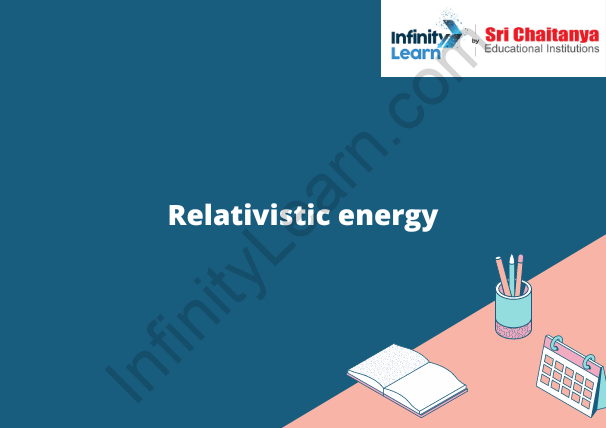Table of Contents
What is Relativistic energy
Relativistic energy is the total energy of a particle as observed by an observer in a reference frame in which the particle is moving at a relativistic speed. It is a consequence of the theory of relativity, which states that the laws of physics are the same for all observers, regardless of their relative motion.
The relativistic energy of a particle with mass m and velocity v is given by the following equation:
E = mc^2 / √(1-v^2/c^2)
where:
E is the relativistic energy of the particle m is the rest mass of the particle v is the velocity of the particle c is the speed of light in a vacuum (approximately 3.00 x 10^8 m/s)
This equation is known as the mass-energy equivalence formula and shows that the energy of a particle increases as its velocity increases, approaching infinity as the velocity approaches the speed of light.
In classical physics, the total energy of a particle is equal to its kinetic energy (the energy it possesses due to its motion) plus its potential energy (the energy it possesses due to its position or configuration). However, in the theory of relativity, the concept of kinetic energy is modified to include the rest mass energy of the particle, and the total energy of a particle is given by the mass-energy equivalence formula above.
Relativistic energy Derivation
E = mc^2 / √(1-v^2/c^2)
where:
E is the relativistic energy of the particle m is the mass of the particle v is the velocity of the particle c is the speed of light in a vacuum (approximately 3.00 x 10^8 m/s)
This equation is known as the mass-energy equivalence formula and is a consequence of the theory of relativity. It states that the total energy of a particle is equal to its rest mass energy (mc^2) plus its kinetic energy (Ek). In the case of a particle moving at a velocity v, the kinetic energy can be expressed as:
Ek = mc^2 * (√(1-v^2/c^2) – 1)
Substituting this expression for Ek into the mass-energy equivalence formula gives us:
E = mc^2 + mc^2 * (√(1-v^2/c^2) – 1)
Which simplifies to:
E = mc^2 / √(1-v^2/c^2)
This equation shows that the energy of a particle increases as its velocity increases, approaching infinity as the velocity approaches the speed of light.
Application of Relativistic energy
The concept of relativistic energy is important in a number of fields, including particle physics, astronomy, and engineering. Some applications of relativistic energy include:
- Particle accelerators: Relativistic energy is used to calculate the energy of particles moving at speeds close to the speed of light in particle accelerators.
- Cosmic rays: Cosmic rays are high-energy particles that originate from outer space and can be detected on Earth. Relativistic energy is used to calculate the energy of these particles.
- Nuclear power: In nuclear power plants, the energy released by nuclear reactions is calculated using the mass-energy equivalence formula.
- Relativistic rocket propulsion: Theoretical designs for rocket engines that would use the mass-energy equivalence formula to achieve relativistic velocities have been proposed.
- High-energy physics: Relativistic energy is important in the study of high-energy particle collisions, such as those that occur at the Large Hadron Collider.
- Astrophysics: Relativistic energy is used to calculate the energy of particles and objects in space, such as black holes and neutron stars.
- Medical imaging: Relativistic energy is used in PET (Positron Emission Tomography) scanners, which use high-energy particles to create images of the inside of the human body.







